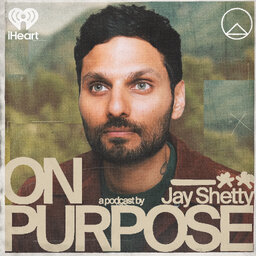Why Your Relationship Checklist is Getting in Your Way & How to Stop Questioning if You are With the Right Person
What do you look for in a partner?
What do you think makes a relationship interesting?
Today, let's talk about the disparity between what people say they want in a partner — traits like kindness, empathy, and thoughtfulness — and what they often find themselves attracted to, which may be more superficial qualities like physical attractiveness.
Jay references research from the Pew Research Center to highlight that 35% of men value physical attractiveness most in women, while 33% of women value honesty and morality most in men. He discusses how societal pressures and media influence shape these preferences and often lead people to prioritize the wrong traits, which can result in unsatisfying relationships.
Additionally, Jay addresses the issues of men looking for nurturing qualities in women, sometimes in an unhealthy, maternal sense, and the pressure on men to achieve professional and financial success. He also touches on the societal expectations and challenges faced by successful women who feel they need to downplay their achievements to attract partners.
In this episode, you'll learn:
How to identify cover values in a partner
How to balance attraction and values
How to avoid common relationship pitfalls
How to build a connection based on values
How to foster a healthy relationship
By focusing on qualities like kindness, empathy, and honesty, we can build deeper, more meaningful connections. True compatibility goes beyond physical attraction and societal expectations, it's rooted in shared values and mutual respect.
With Love and Gratitude,
Jay Shetty
What We Discuss:
00:00 Intro
02:26 What Is More Important to Us in a Partner?
04:44 #1: Physical Attractiveness
05:16 #2: Honesty and Morality
08:37 #3: Empathy, Nurturing, Kindness
15:30 #4: Professional, Financial Success
18:49 #5: Intelligence
23:06 Looking for Love in the Wrong Places
In 1 playlist(s)
On Purpose with Jay Shetty
My name is Jay Shetty, and my purpose is to make wisdom go viral. I’m fortunate to have fascinating …Social links
Follow podcast
Recent clips

Sales Expert Shelby Sapp: The Simple Sales Framework You Can Use in Work, Money, and Relationships (Follow THIS Method to FINALLY Get The Life You Deserve)
1:41:31

Stop Saying Yes When You Want to Say No! (Follow THESE Clear Boundaries to Protect Your Energy)
23:09

John Edward: Stop Trying to “Move On” After Loss (Use THIS Daily Practice to Make Peace Without the Answers)
1:29:30
 On Purpose with Jay Shetty
On Purpose with Jay Shetty